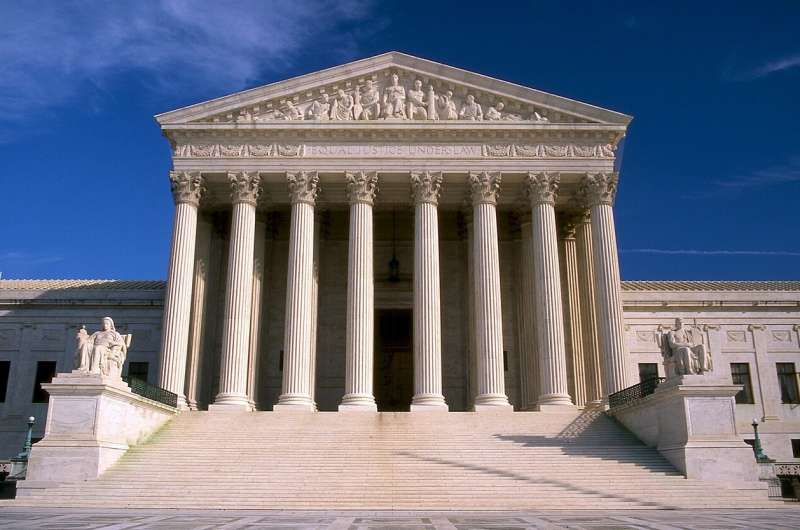

There’s a universe of possible outcomes if the Supreme Court takes up the TikTok case, a Northeastern University legal scholar says, including a ruling that signals a “slippery slope” toward more restrictions on constitutional freedoms of speech.
The stakes are high, says Sahar Abi-Hassan, assistant professor of political science on Northeastern’s Oakland campus.
The U.S. Court of Appeals for the District of Columbia Circuit earlier this month upheld a bill passed by Congress and signed into law by President Biden in April that ordered the video app to either divest from its Chinese-based owner or be banned from the U.S. app market. If the high court agrees to hear TikTok’s appeal, it may consider the scope of freedom of speech through the “novel issue” of social media, Abi-Hassan says.
“(It would) resolve some of these questions about whether social media can operate as freely as the press,” she says.
If the Supreme Court upholds the lower court’s Dec. 6 ruling, the decision would “change the framework in how we interpret the First Amendment and open a door for further restrictions by the government on freedom of speech and freedom of the press,” Abi-Hassan says.
Upholding the law and enforcing any eventual ban would prevent 170 million users in the U.S. from being able to express themselves and to associate with each other, she says, “which are pretty much the fundamentals under the First Amendment.”
TikTok is also how millions of people get their news, Abi-Hassan says. Yet historically, the Supreme Court has been reluctant to put restrictions on speech, she says.
And in spite of the court’s conservative majority, it is not split on freedom of speech, Abi-Hassan says.
“This is not really an ideological case,” she says. “I doubt that they would actually think that we should put further restrictions on freedom of speech.”
TikTok, and its Chinese owner ByteDance, fell under investigation in the U.S. almost as soon as the video app was created in 2016. But scrutiny intensified during Donald Trump’s first presidency when he issued an executive order requiring the company to sell its U.S.-based assets to an American company. That order unraveled, but in the spring, Congress passed a bipartisan bill to force TikTok to sell to a U.S. company.
The high court may decide to take the case out of deference to the other two branches of government, Abi-Hassan says. The recent law passed with bipartisan support and, in the past, the president-elect has supported reining in TikTok.
If the Supreme Court were to take the case, one possible outcome is a “plurality decision,” where the majority opinion is signed by less than the five justices required to set precedent, Abi-Hassan says.
If the court rules in favor of the government, the lower court’s ruling would stand, TikTok would have to sell or be banned but no precedent would be set.
If the court rules in favor of TikTok in a “plurality opinion,” the lower court’s decision would be overturned but the case wouldn’t set precedent.
“It gives the government a win without necessarily changing the interpretation of the First Amendment in the long run,” Abi-Hassan says.
But lack of precedent doesn’t mean the ruling wouldn’t have an impact on future cases. Legal advocates could still use the logic of the arguments in future litigation.
Whatever the outcome, she adds, the impact would be on all businesses that collect user data.
“What the government is trying to stop is not unique to TikTok,” Abi-Hassan says. “That’s how all platforms work, not just social media platforms but even shopping platforms.”
Provided by
Northeastern University
This story is republished courtesy of Northeastern Global News news.northeastern.edu.
Citation:
What would a Supreme Court’s ruling on TikTok mean for free speech protections in the US? (2024, December 15)
retrieved 15 December 2024
from https://phys.org/news/2024-12-supreme-court-tiktok-free-speech.html
This document is subject to copyright. Apart from any fair dealing for the purpose of private study or research, no
part may be reproduced without the written permission. The content is provided for information purposes only.



